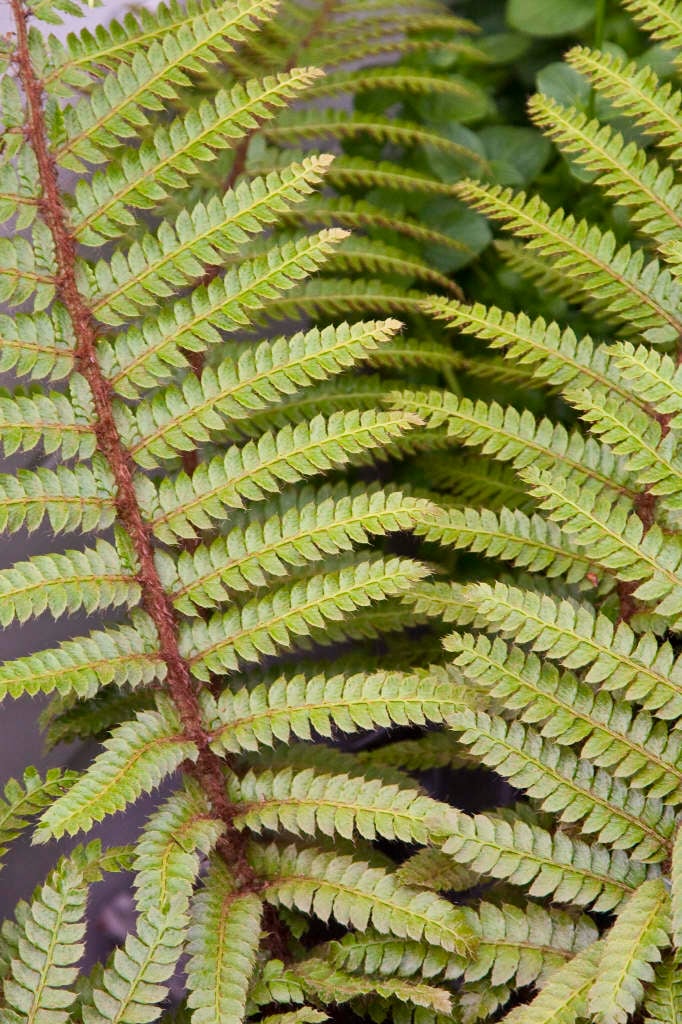Polystichum polyblepharum
Japanese lace fern
An evergreen fern forming a 'shuttlecock' of spreading, glossy dark green, bipinnate fronds; attractive young fronds yellowish-green, more erect and covered with hair-like golden scales
Size
Ultimate height
0.5–1 metresTime to ultimate height
2–5 yearsUltimate spread
0.5–1 metresGrowing conditions
Moisture
Well–drainedpH
Acid, Alkaline, NeutralColour & scent
| Stem | Flower | Foliage | Fruit | |
| Spring | Bronze | |||
|---|---|---|---|---|
| Summer | Green | |||
| Autumn | Green | |||
| Winter | Green |
Position
- Full shade
- Partial shade
Aspect
North–facing or East–facing
Exposure
Sheltered Hardiness
H7Botanical details
- Family
- Dryopteridaceae
- Native to GB / Ireland
- No
- Foliage
- Evergreen
- Habit
- Bushy
- Genus
Polystichum are mostly evergreen or semi-evergreen ferns, with short stout rhizomes and pinnately divided fronds in neat shuttlecock-like rosettes
- Name status
Correct
- Plant range
- E Asia
How to grow
Cultivation
Grow in fertile, humus-rich, well-drained soil in deep or partial shade; protect crowns from excessive winter wet and provide a mulch around the crown to prevent crown from drying out. See how to grow ferns for further advice
Propagation
Propagate by spores, sow spores at 15-16°C (59-61°F) when ripe; divide rhizomes in spring or detach fronds bearing bulbils in autumn
Suggested planting locations and garden types
- City and courtyard gardens
- Rock garden
- Cottage and informal garden
- Patio and container plants
- Low Maintenance
- Flower borders and beds
- Underplanting of roses and shrubs
Pruning
Remove dead fronds before new ones unfurl
Pests
Generally pest-free
Diseases
Generally disease-free but may be susceptible to grey moulds (botrytis) or the fungal disease Taphrina wettsteiniana
Get involved
The Royal Horticultural Society is the UK’s leading gardening charity. We aim to enrich everyone’s life through plants, and make the UK a greener and more beautiful place.
